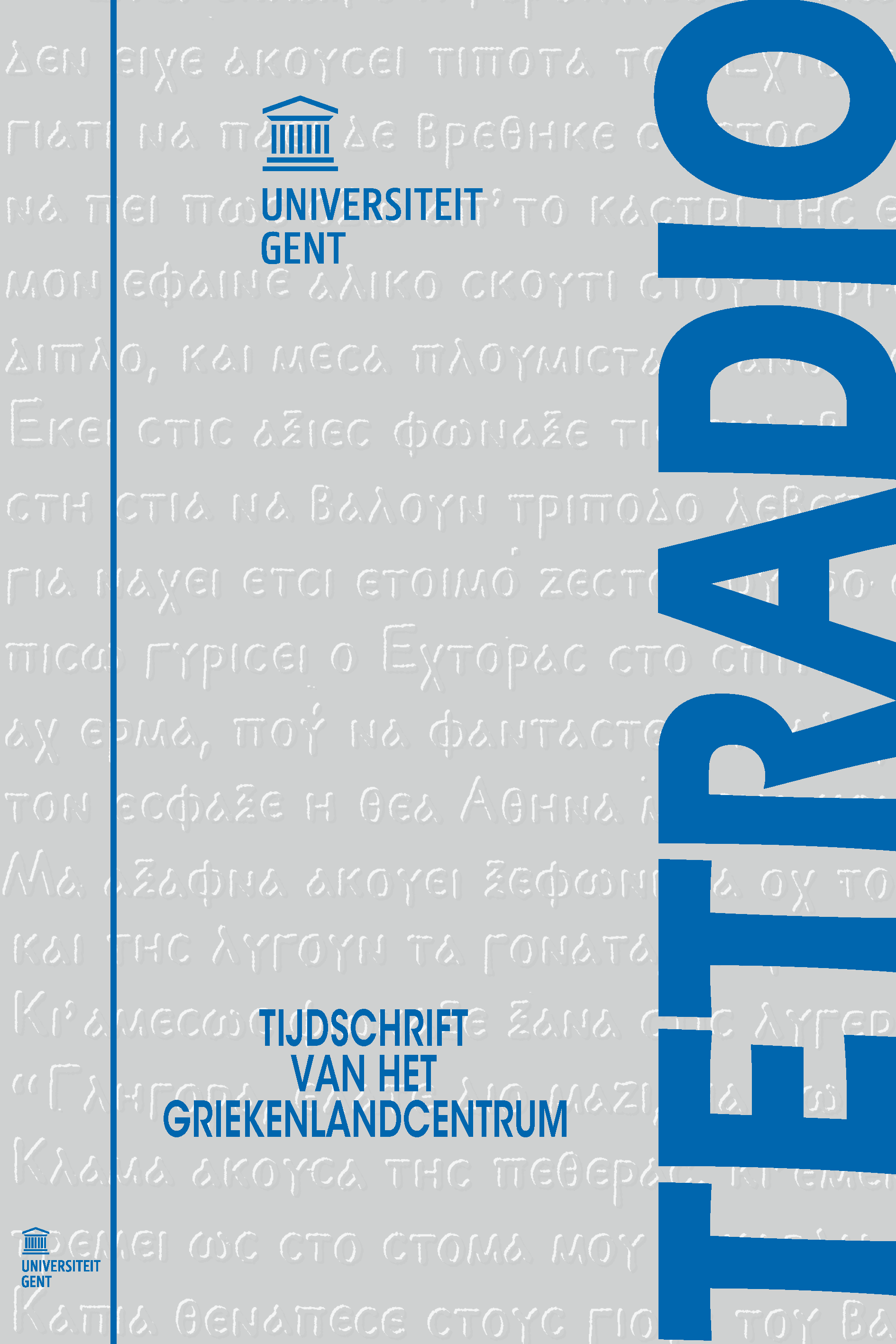Van analfabeten tot langzame schrijvers: Grieks schrijfonderwijs in Egypte
Abstract
This article summarizes the evidence for Greek education in Greco-Roman Egypt on the basis of documentary papyri. Writing education usually started with learning to write your name, the letters of the alphabet and copying short passages, before one continued to learn how to read and compose texts. Since writing education was not accessible to everyone and students could drop out at any time, various degrees of literacy are found in the papyri: from illiterates with some acquaintance with written materials to fully and actively literate individuals. The so-called ‘slow writers’ may have joined the first stages of writing education so that they were able to write their name or copy short passages, but they were not regarded as fully literate, probably often because they were unable to read for themselves. Being able to write often implied knowing Greek, especially from the Roman period onwards. The arrival of Coptic (written in the Greek script) meant that monolingual Egyptians were able again to produce or reproduce texts – even Greek ones – without knowing Greek perfectly.
How to Cite:
Stolk, J., (2019) “Van analfabeten tot langzame schrijvers: Grieks schrijfonderwijs in Egypte”, Tetradio 28(1): 2, 23–50. doi: https://doi.org/10.21825/tetradio.91880
Downloads:
Download PDF
View PDF

